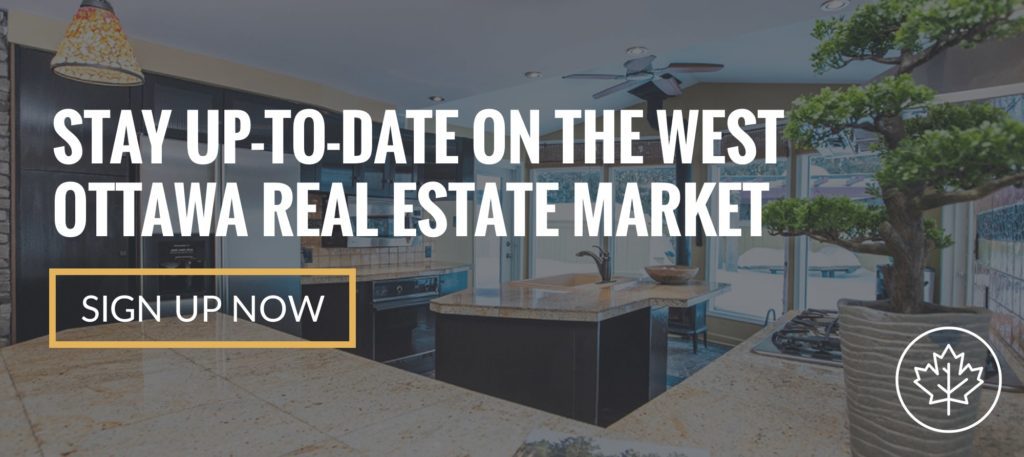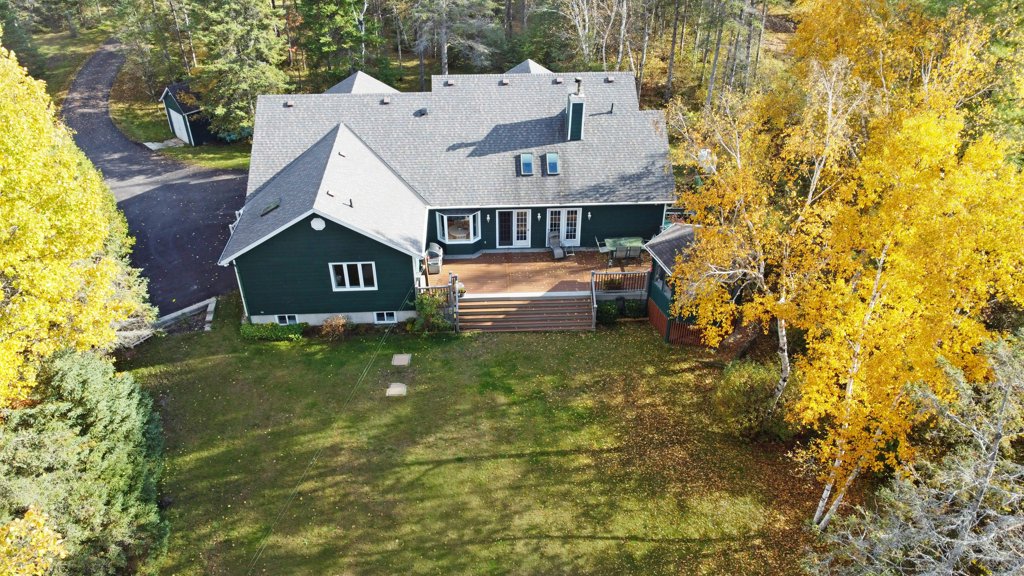A Guide for Upgrading Your Home Near Ottawa
Selling • January 24, 2023
Two years ago, we would have thought something like this would never happen. But after a long period of record-breaking growth in the real estate market, Ottawa housing prices have finally come down. If you’ve ever thought about upgrading to a larger home or a new neighbourhood, now just may be the time. It isn’t just lower prices, either. As a move-up buyer, you have more options.
With many people leaving the workplace and downsizing, more family homes are on the market than we’ve seen in a long time. Just imagine what you would do with all that extra space! You might be able to have that games room, home gym, or anything else you’ve always wanted. However, before you can start living in your new reality, you’ve got some work ahead of you. Upgrading your home is exciting, but some planning is involved. What should you do first? This guide will show you the steps you’ll want to take to accomplish your goal.
Determine Your Budget
Before you fall in love with a beautiful home you see on the MLS® or at an open house, you want to get a clear idea of your budget. Nothing is worse than getting your heart set on a certain listing only to find it is far out of reach financially. Here are two factors to consider to determine how much you can comfortably afford for your next home.
1) The Down Payment
If the home you have your eye on has a price tag of $1 million or more, you’ll need at least 20% upfront, which means $200,000 or more. The down payment is often the most challenging aspect of your purchase, since most people don’t have this kind of cash on hand without first selling an existing property.
What if the house is less than $1 million? In that case, you need 5% on the first $500,000 and 10% on any amount between $500,000 to $999,999. A property even slightly less than $1 million is far more accessible because of the lower down payment. For example, imagine the home you want is $950,000. Your down payment is $25,000 (5% of $500,000) plus $45,000 (10% of $450,000), for a total of $70,000. As you can see, the barrier to entry is much lower even though the house is only marginally less expensive.
A successful sale makes affording the down payment on your next home far more accessible. Here are some resources to help you maximize your results:
- How to Successfully Sell Your Home in Ottawa
- Say Cheese! 5 Reasons Why You Should Hire a Professional Real Estate Photographer
- What To Disclose When Selling Your Home
2) The Monthly Carrying Costs
Making your down payment is one thing. Ensuring you can comfortably cover the monthly carrying costs is the next challenge. It isn’t just the principal of the loan, but the interest. A mortgage broker can help you get the best rates, which can save you thousands of dollars over the duration of your mortgage.
Ideally, your housing costs shouldn’t exceed 32% of your gross monthly income. In addition, you’ll want to have a rainy day fund for maintenance and other unexpected expenses.
Want to know how much you need for your monthly payments on a new house? Test out our handy mortgage calculator right here.
Understand Your Resources
A high income and abundant savings will be instrumental in determining how much to spend on your new home. However, as an existing homeowner, you are at a massive advantage. The longer you’ve owned your property, the more equity you have built as its value has appreciated.
This equity can make buying an upgraded home more affordable in two ways.
- You can sell your existing home at a profit to cover a large portion of your purchase. This also shields you from fluctuating interest rates because your mortgage will be smaller.
- You can borrow against your equity to make your down payment, allowing you to retain ownership of your existing home. You may decide to sell later or keep it as an income property to rent out.
Since your existing home plays such a pivotal role in your decision to upgrade, you’ll want to know how much it is worth in the current market. A local real estate agent can help by performing a detailed evaluation based on size, age, location, and other factors.
Looking for a larger home in a rural area just outside of Ottawa? Check out some of our latest featured listings right here.
Should You Sell or Buy First
Now that you know how much your existing home can help you in your quest to upgrade, it’s time to decide how best to leverage that advantage. Should you sell first before you go house hunting? Or is it better to wait until you’ve placed a winning offer on a new home first? The answer depends on your preferences and on current market conditions.
The Case For and Against Selling First:
Selling first is the least risky option, financially speaking. You’ll have the cash on hand to make your purchase without worrying about your transaction falling through. Plus, you’ll be able to place an offer without the condition of sale, which could give you an edge if you have to compete with other buyers.
The disadvantage to selling first is you then need to find and secure your new home before the closing date. Otherwise, you may have to arrange for temporary accommodations while you search for that perfect place. If it’s a buyer’s market with plenty of listings available, then selling first may make a lot of sense.
What is the best place for you to call home after you move? Here are some areas to consider:
- Top 5 Reasons We Love the Village of Carp
- Everything You Need to Know About Mississippi Mills Township
- Your Guide To Waterfront Properties In Ottawa
The Case For and Against Buying First:
The nice thing about buying before you sell is that you have plenty of time to find what you’re looking for. And in a busy market, you can grow your equity even faster by temporarily holding on to two properties.
The downside is that this option can be expensive, especially if selling your existing home takes longer than anticipated. Housing values could also drop temporarily. Buying first is the riskier option financially. However, it may be worth it depending on the market–if you have enough funds to cover both homes for as long as it takes.
Do you have questions about selling or buying a home in the current market? We specialize in Ottawa and the surrounding areas and are happy to tell you everything you need to know. Reach out to us at team@westottawarealestate.ca or call 613-690-5993 to get started.


